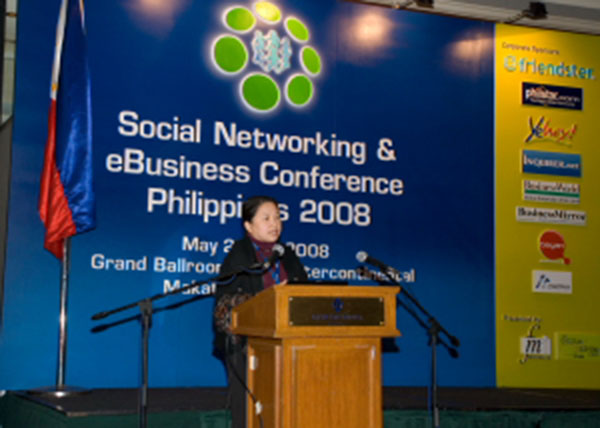E-Commerce For Farmers
Despite the fact that the country is pushing itself as an IT E-Services Hub to the world, the agricultural sector is an area where the Philippines is not giving up its competitive place in the global market. But it is facing a lot of challenge.
The adoption of e-commerce in this sector and the empowerment of its stakeholders are important. Depending on who you are talking to, around 45% to 70% of the population is dependent on agriculture and its related industries. It means around 30 million Filipinos young or old (including toddlers) are dependent on agriculture. This includes children who have parents dependent on agriculture as source of living.
22 Agricultural Competitive Products
The Philippines, through the Department of Agriculture Agribusiness and Marketing Assistance Service (DA-AMAS), are pushing for the following competitive products.
- Hogs
The DA is confident in this area since Taiwan, who is one of the competitive producers of hogs and other agricultural, already shifted on IT and telecomms. - Table egg
- Broiler
- Seaweed / Carrageenan
The country dominates the world market for this type of seaweed. - Bangus
- Tilapia
- Prawn
- Mango
The Philippine mango is one of the best in the world, if not the best. - Banana Saba for banana chips
This is popular as an alternative to potato chips that has high calories. Banana chips has 0 calorie. It is becoming a craze to countries like Europe. - Coffee
- Palm Oil
- Coconut
- Banana Lakatan
- Rubber
- Abaca
There are only 2 major producers of abaca in the world, Philippines and Ecuador. The Philippines is number one in this product. - Papaya
- Exotic Fruits
- Durian
- Pomelo
- Rambutan
- Onions
- Cutflower
- Spices
- Garlic
- Ginger
- Black pepper
- Rootcrops
- Ubi Kinampay
- Sweet potato
- White potato
- Cassava
- Beverages
- Calamansi
- Banaba
Around August 2000, I’ve been fortunate to be invited as one of the resource persons joining the Department of Agriculture Agribusiness and Marketing Assistance Service (DA-AMAS) in its island-wide “Consultative and Awareness Seminar Series on E-Commerce.” Through the program, we visited provinces like Davao City, Cagayan De Oro City, Cebu City and other areas of the country educating them on e-commerce. As Senator Ed Angara stepped down as Department of Agriculture Secretary at that time, the agency’s campaign on e-commerce dwindled too.
Challenges
With globalization and tougher market competition, the need for the agricultural sector to re-orient itself, making one marketable, is important. In modernizing the agricultural sector, access to valuable information such as which crop to plant that has high-paying buyers, capital or credit, and technology are vital.
Both government and private sector must take the necessary measure to ensure that producers and buyers meet in a marketplace. It needs to facilitate and create market encounters and investment missions where the different producers and buyers can meet. But it is easier said than done.
The entry of the Internet and the passage of the E-Commerce Law gave boost for the idea of creating a marketplace, to reach out to farmers, giving them the virtual marketplace to meet potential buyers. However, access to technology and computer know-how became a bigger issue. It is still a long walk to go to the nearby Internet cafe. The rental fee is already good enough to partly subsidize one meal. Cellular phones instead became the most practical way to reach out to them.
But with the limitation of the cellular phone on displaying product information, cooperatives are being tapped and taught on the use of ICT. Immersion will take time. ICT-enabling cooperatives to market their members are a good start.
The question on money being quickly deposited to their rural bank accounts is a consistent issue. The velocity of money from urban to rural, regardless of bank, with less float requirement is becoming an important need, more and more each day. In these hard times, market forces through organizations should take the stand, by coming up with resolution or position paper, and push the Bangko Sentral ng Pilipinas and the banking community to offer full-way urban-to-rural inter-bank fund transfer. Until this is done, no matter how optimistic and determined we can get on e-commerce, we will be extremely slow in making any dent in empowering the agricultural sector. Note that this also has an impact to the overseas Filipino workers whose organizations should take a position on this subject too.
B2BPriceNow.com is the premiere free marketplace in the Philippines who is primarily promoting the agricultural sector. Its social entrepreneur, Edgardo Herbosa, have been around the country to reach out to farmers and cooperatives, putting them online. He partnered with telecommunication companies and players in the agriculture supply chain to make information, capital or credit, and technology available.
However, with 22 product segments to take care of, there’s a lot of effort that needs to be done in order for e-commerce to make a big dent in this sector. We are currently in search for a great success story in this area that through the use of the Internet and mobile phone, they became better off in the conduct of their business.
The Philippine farmer is an entrepreneur who can be empowered well if the countryside is modernized, make valuable information accessible to them, and be given access to capital and more buyers.


Leave a Reply